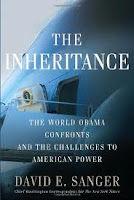This book is an interesting take on the culture wars in the United States. Written from a libertarian perspective, it argues that political debate in the U.S. is dominated by two ideological minorities. On the left, there is a liberal class that promotes the cultural and sociological fruits of capitalism (e.g. cultural experimentation; an increasing capacity to pursue intellectual and scientific pursuits), while criticizing the very economic system that makes these fruits possible. Meanwhile, on the right, there are political partisans who recoil at the cultural opportunities created by capitalism, while defending the economic system that gives rise to these opportunities.
The thesis of the book is that these two extremes are vocal but minority groups. The majority – the libertarian center – comprises people who are more socially permissive than those on the right, but who also believe in free markets and the capitalist structure, which puts them at odds with many on the left.
I found this thoughtful book to be very enjoyable and would recommend it to anyone interested in U.S. politics. If I were to have one critique, however, is that it fails to describe in any great detail the so-called libertarian center. Though we hear a lot about hippies on the left and the religious-right, there is relatively little discussion of the center. The resulting effect is akin to a good comedian who forgets to say the punchline.
3 1/2 out of 5 stars




